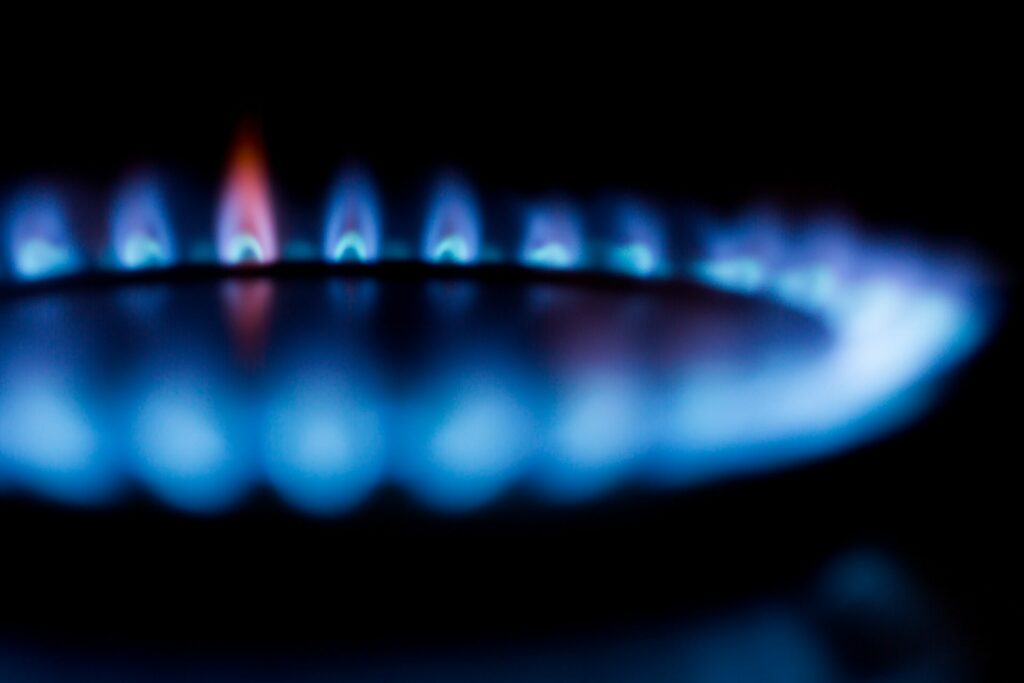By January next year, European reserves of natural gas could completely run out, experts in the energy field are now warning.
Under the current energy conditions, including the recent throttling of gas supply through the North Stream 1 pipeline, which Russia blames on technical problems, there is a risk that Europe will not be able to store the gas it needs for accelerated heating during the colder winter days, according to energy research and consultancy company Wood Mackenzie.
If Nord Stream continues at 45% capacity, Europe will reach 69% storage capacity for the winter. If Russia halts supply entirely, Europe will be able to refill to a maximum of 60%, the company argued.
“If Gazprom continues restricting flows, in both cases storage will run out throughout winter unless other demand or supply measures are taken, or Gazprom sends additional gas via available booked capacity via Ukraine, although we believe this is very unlikely,” said Kateryna Filippenko, principal analyst for global gas research at Wood Mackenzie.
Energy woes exacerbated
Russia has been tightening its gas supply to Europe since 2020 by refusing to use Ukrainian gas transit infrastructure and redirecting its supply. Russia’s invasion of Ukraine, and subsequent international sanctions imposed on the country, have indirectly further added to Europe’s energy woes.
On 23 June, the price of gas futures on the Dutch TTF exchange exceeded €133 per megawatt-hour for the first time since March. Gazprom has also demanded payment for its natural gas in rubles, a request refused by many European nations, who have found themselves shut off from supply.
“Gazprom’s supply into Europe is the biggest unknown. If Gazprom restarts flows via Nord Stream at full capacity, although we believe this is unlikely, and Russian flows are at contracted levels,” Filippenko added.
Belgium’s Energy Minister Tinne Van der Straeten stressed that there was “no indication” that the supply of natural gas to Belgium was likely to be stopped, but did call for greater joint purchases.
Radical changes to come
Wood Mackenzie predicts that demand-side measures will have to be taken in Europe to keep homes warm during the winter. Notably, consumers may be told to massively save energy or change their usual fuel sources.
Some supply-side lifelines include increasing domestic production of natural gas at Groningen in the Netherlands, or increasing imports from Norway and Algeria, but the research groups believe this will have a minimal impact.
Related News
- 'Accidents will happen' if EU does not form 'single energy block,' says De Croo
- Majority of EU household energy comes from natural gas
- Germany fires up coal plants to prevent winter gas shortage
Meanwhile, liquified natural gas (LNG) supplies, which Europe had hoped would help alleviate Europe’s transition away from Russian gas supplies, may not prove to be the lifeline it was once considered to be.
Demand for LNG is growing, and not only in Europe. Tankers of LNG are travelling to Asia where prices are higher and experts predict that China’s industrial economy will begin to rebound at the end of the year. The demand for electricity from gas sources has also only grown and is environmentally preferable to coal.
Unlike Belgium, Germany has already triggered the “alert level” of its emergency plan, signalling that long-term supply is likely to be affected. German Economy Minister Robert Habeck stated that the cutting of gas supplies was an “economic attack on us by Putin.”
Gas brokers are now scrambling to purchase supplies before the start of the heating season and are increasingly forced to do so at high prices and lower volumes.
“The situation is evolving rapidly, and Europe may end up in a world without Russian gas sooner than expected and therefore preparations need to start now,” Wood Mackenzie's Filippenko concluded.

